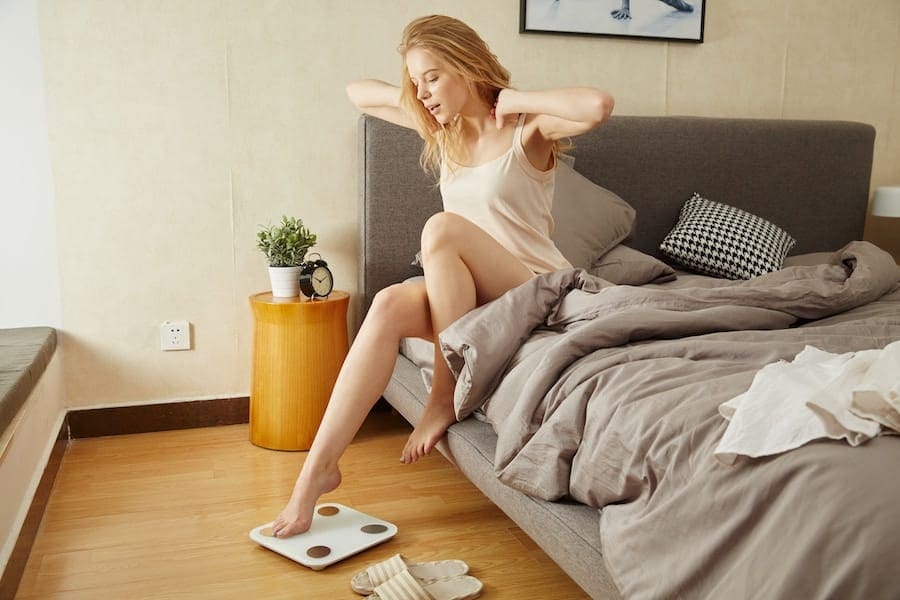Full Disclosure: Clicking on these links could mean a tiny commission for me, at no extra cost to you.
Discovering your anxiety mistakes is actually a positive thing! It presents you with the opportunity to correct them. Today, let’s talk about the 8 major anxiety mistakes we all make and more importantly, what you can do to change them to further improve your mental health as a whole.
8 Major Anxiety Mistakes You Didn’t Know You Were Making
As you read the following list of major anxiety mistakes, don’t get down on yourself. Instead, acknowledge the problem and take a proper steps to fixing them.
1. Underestimating the Power of Breathing Techniques
The number one anxiety mistake we all make is underestimating the power of breathing techniques. Anxiety is such an intense and horrible feeling that we often feel like we need something huge to correct it.
However, breathing techniques are one of the most powerful (and easiest) coping methods when it comes to anxiety. Yes, it is just breathing but it works! Stop underestimating the power of using your breath to slow down your nervous system because it works.
Here are our top breathing techniques for anxiety.
2. Believing Positive Thinking Isn’t Going to Change Your Anxiety
If you’re convinced that negative thinking has nothing to do with your anxiety, think again – pardon the pun. Changing your thought patterns from negative to positive rewires your brain. This can produce higher levels of serotonin and dopamine, while also decreasing your cortisol levels (your stress hormone).
Not only that but when you train your brain to think positive, you feel better as a whole. And when you feel happier and more optimistic, anxiety tends to lessen.
3. Overlooking the Success of Gratitude
You’re not the only one who is convinced being grateful has nothing to do with your anxiety – we were once culprits as well. However, through our own personal experiences (and experiments), we have discovered that counting your blessings is a successful way to alleviate anxiety.
When you train your brain to focus on (and find) the good in every situation, it starts to rewire itself to produce more feel-good hormones, such as serotonin and dopamine. Not only that but the “bad things” slowly start to appear smaller and smaller, which instantly increases your happiness.
So, practice gratitude. It works.
4. Doing Nothing At All
The first thing we ask people when they come to us for anxiety advice is, “What are you doing to help your anxiety?” You’d be surprised at how many people can’t answer this question.
The reality is, you cannot improve your anxiety if you aren’t doing anything about it. Yes, we all wish anxiety could disappear with a snap of our fingers but it just doesn’t happen like that. As the saying goes, everything in life worth having takes hard work. If you are serious about overcoming your anxiety, you have to be willing to work for it.
This can be as simple as practicing gratitude each night with gratitude questions, speaking with an online therapist, or reading inspiration quotes each morning to remind yourself to stay positive.
5. Not Eating a Clean Diet
Your diet is important. The things you put in your body play a direct role on how your brain functions. So, if you’re feeding your brain crap, you can expect it to operate the same way.
It’s easy to underestimate how important a clean diet is, but as soon as you take a couple of bites of real food, you will start to see the effects. So, strive to eliminate refined sugars, packaged food and fast food from your diet – to start.
6. Forgetting About Your Gut Health
Similar to the prior anxiety mistake, your gut health matters. If you’re wondering how your digestive tract has anything to do with your mental health, you aren’t alone. It’s difficult to see how the two are connected.
However, your gut health plays a direct role in how your brain operates. There have been many studies that have shown the link between stomach bacteria (good and bad) and the effect it has on the regions of the brain that are responsible for producing anxiety and depression.
Fiber supplements are especially beneficial for gut health as they help promote regular bowel movements and prevent constipation, supporting a healthy digestive system. A great choice for that is Colonbroom supplements. Additionally, fiber acts as a prebiotic, nourishing beneficial bacteria in the gut and aiding in the maintenance of a balanced microbiome, which is crucial for overall gut health.
Start taking daily supplements to improve your gut flora. Here’s our top supplements for anxiety.
7. Not Exercising
Exercising is often the last thing you want to do after getting through a long, exhausting day of anxiety but you have to do it. No, you don’t have to pay for an expensive gym membership or sweat your life away on a treadmill. You just have to move.
We highly recommend practicing yoga daily, as it also exercises your brain and mental health while toning your body. However, any type of movement that gets your heart rate going will improve your anxiety, such as a daily 15-minute walk around the block or a 30 minute online yoga class.
8. Underestimating The Benefit of Mindfulness
In addition to exercising your body, you need to exercise your brain. Similar to breathing techniques, it’s easy to underestimate the power of mindfulness. For most of us, we write this concept off as being nothing more than some breathing and chants but don’t be mistaken.
Mindfulness is beneficial for anxiety sufferers. Add in the fact that it’s incredibly easy to practice, and there’s no reason not to practice mindfulness. The best part? You only need 7 minutes a day with 7 Minute Mindfulness.
We are all culprits of making these anxiety mistakes but what’s important is what you’re going to do about it. Start making some changes in your life and your mental health will follow.
Trust us. It works.








